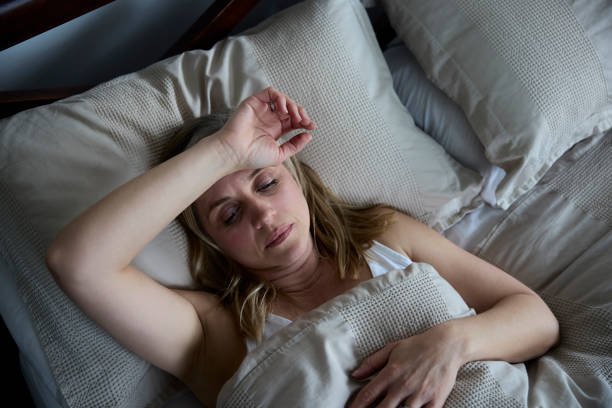Sleep disorders are a common issue that many women face, especially as they age and enter various stages of hormonal changes like perimenopause and menopause. These changes often disrupt the body’s natural rhythms, leading to poor sleep quality, insomnia, and other related issues. A lack of quality sleep can significantly impact physical health, emotional well-being, and overall quality of life. One emerging solution for addressing sleep disorders in women, particularly those linked to hormonal fluctuations, is hormone replacement therapy (HRT).
Understanding Sleep Disorders in Women
Sleep disorders can manifest in many ways, ranging from trouble falling asleep, staying asleep, to experiencing non-restorative sleep. For women, hormonal fluctuations play a key role in disrupting sleep patterns. Sleep disorders become more pronounced during phases like pregnancy, perimenopause, and menopause, as these stages involve significant changes in hormone levels.
Estrogen and progesterone, two primary female hormones, directly influence sleep quality. Estrogen promotes the production of serotonin, a neurotransmitter that helps regulate sleep, while progesterone has a calming effect on the body, making it easier to fall asleep. When these hormones are out of balance, women often experience symptoms like hot flashes, night sweats, and anxiety, which can all contribute to sleep disorders.
Impact of Hormone Fluctuations on Sleep
Many women don’t realize how closely their sleep issues are linked to hormonal health. Fluctuations in estrogen and progesterone levels can cause changes in the body’s ability to regulate sleep. This is why women are more prone to sleep disorders during periods of hormonal change, like perimenopause and menopause. Symptoms such as hot flashes and night sweats are often a direct result of decreased estrogen levels. These symptoms can wake women up multiple times during the night, making it difficult to get restorative sleep.
Additionally, lower progesterone levels can lead to increased anxiety and mood disturbances, which can further exacerbate sleep disorders. Women in these stages may find themselves lying awake, unable to fall asleep due to racing thoughts or physical discomfort. Hormonal changes can also disrupt the body’s circadian rhythm, making it harder to fall asleep at the usual time, leading to insomnia.
Hormone Replacement Therapy (HRT) as a Solution
For women dealing with sleep disorders linked to menopause and other hormonal changes, hormone replacement therapy offers a promising solution. HRT involves supplementing the body with estrogen, progesterone, or a combination of both to restore hormonal balance. This treatment can alleviate many of the symptoms that contribute to poor sleep, such as hot flashes, night sweats, and mood swings.
When estrogen levels are restored, the body can better regulate temperature and reduce the severity of hot flashes and night sweats. Additionally, by balancing progesterone levels, HRT can help ease anxiety and promote a sense of calm, making it easier to fall asleep and stay asleep. These hormonal adjustments can improve overall sleep quality and help women get the needed rest.
Role of HRT in Treating Sleep Disorders
The primary goal of HRT in treating sleep disorders is to stabilize hormone levels that have been disrupted due to menopause or other hormonal conditions. Once these levels are balanced, many women report improvements in their ability to sleep through the night. Restoring estrogen and progesterone also helps regulate the sleep-wake cycle, which may have been disturbed by hormonal fluctuations.
It’s important to note that while HRT can be highly effective for improving sleep quality, it’s not a one-size-fits-all solution. Women considering this treatment should work closely with their healthcare provider to determine the right type and dosage of hormones that are appropriate for their specific situation. There are different forms of HRT, including pills, patches, and creams, and the best option may vary depending on individual health factors and preferences.
Addressing Other Factors Affecting Sleep
While HRT can significantly help in treating sleep disorders, it’s also essential to address other lifestyle factors that may be contributing to poor sleep. Developing good sleep hygiene is crucial for ensuring long-term success. This includes:
- Maintaining a regular sleep schedule: Going to bed and waking up simultaneously every day helps regulate your body’s internal clock.
- Creating a comfortable sleep environment: Keeping the bedroom cool, quiet, and free of distractions can promote better sleep.
- Limiting caffeine and alcohol: Both can interfere with the ability to fall and stay asleep, especially when consumed later in the day.
- Managing stress: Techniques like meditation, yoga, or deep breathing exercises can reduce anxiety, making it easier to relax and fall asleep.
Hormone Replacement Therapy
For women dealing with sleep disorders, the availability of expert medical guidance can be key in choosing the right treatment. Many clinics that offer Hormone Replacement Therapy in Florida specialize in helping women navigate the complexities of hormonal changes and their impact on sleep. These specialized centers provide personalized care plans to ensure the therapy is tailored to each woman’s specific needs, enhancing its effectiveness in treating sleep-related issues.
It is important to consult with healthcare professionals who understand the connection between hormones and sleep. By doing so, women can find the most suitable solution, whether it involves HRT or additional therapies to improve their sleep quality. Clinics in Florida are particularly well-equipped to provide this kind of expert care, making HRT a valuable option for women struggling with sleep disorders.
Summary
Sleep disorders can be a debilitating issue for women, particularly those experiencing hormonal changes due to menopause or other conditions. Hormone replacement therapy offers an effective treatment option for restoring balance and improving sleep quality. By addressing the root cause of these sleep disorders, HRT can provide relief from symptoms such as hot flashes, night sweats, and anxiety, allowing women to achieve better, more restful sleep.














